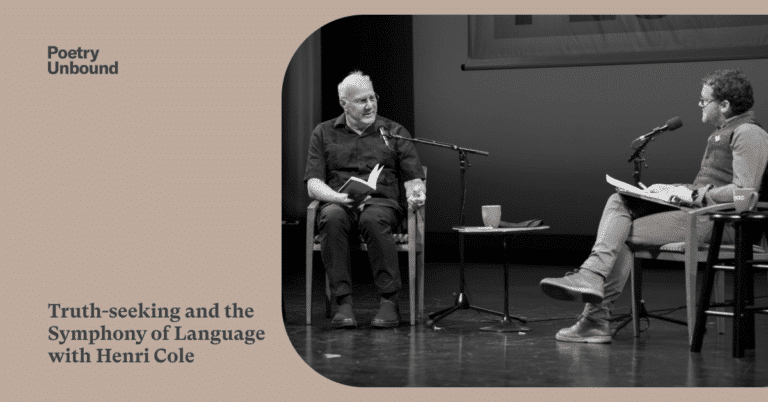
Image by Caro/Flickr, Some Rights Reserved.
Writing the Stepping Stone: Why You Haven’t Written Your Book Yet
At least weekly, I end up in a conversation with someone who tells me that they have a book inside of them just dying to come out. In some ways, I’m deeply sympathetic. Having written a few of them myself, I understand the mountains that must be moved — both logistical and emotional — to get words down on paper, not to mention edit those words, make the case to a publisher that those words are worth dollars and cents, and publicize those words if you are lucky enough to convince a publisher of this, etc.
It’s not for the faint of heart. It’s also not for everybody, which is why, while part of me is sympathetic to those who feel they have an unrealized book in them, part of me often wonders if a book has become a symbolic stand-in for so many other worthwhile things that our culture doesn’t romanticize nearly as much.
Your book might not actually be a book. Is your book actually a letter to someone you’ve loved and lost? Write them a letter. Is your book actually a support group? Start it. Is your book actually a painting or a dance or a podcast or a retreat where you can synthesize the learnings from some profound experience you’ve had? Do that instead.
If you’re sure your book is a book, here are three more reasons that you might consider for why it hasn’t made it out of your head and onto the page:
You haven’t turned off the damn Internet. Wifi is a book killer. The state of mind that is created by multi-tasking on the Internet is a completely different state of mind from that which is required to reflect, write, and edit a book. There is a biochemical basis for this intuitive truth — like the little shots of dopamine from the ping of an incoming email. Even knowing that an email is sitting in your inbox unopened can decrease your effective IQ by 10 points, according to Glenn Wilson of Gresham College, London. So when you’re struggling through a particularly vexing paragraph, trying to wrap words around a powerful, inchoate idea, it’s seductive to roll your cursor over to your inbox or scroll through Facebook or Twitter, or really do anything other than sit with the discomfort of articulation when things are, by necessity, murky.
The solution? Turn off the damn Internet. Some suggestions for how to actually make that happen, depending on how addicted you are to the dopamine ping:
- Set a timer for yourself for exactly how long you are going to stay off wifi, and stick to it. Start small and work your way up to longer sessions. Reward yourself with cookies from the coffee shop or walks around the block when you bend your will in the direction of longer reflection and writing. There are also apps that can help, like Freedom and Anti-Social.
- Keep a pad of paper next to you, and if you come up with something that you think absolutely must be researched, write it down instead of enabling wifi and hopping on Google. When the timer goes off, you can go back to your list and evaluate what actually needs to be researched. You’ll be shocked at how much was just your monkey mind playing tricks on you.
- Avoid the computer entirely. Buy a Freewrite, the world’s first “smart” typewriter. It’s basically just a word processor, but it allows you to save your writing to the cloud. Their Kickstarter campaign to produce the first run earned ,471 — nearly ,000 above their ,000 goal!
You are not a bad person if this is hard. You are also not alone, as evidenced by the huge reaction to Freewrite. We live in a time when the technological tools that help us in so many ways hinder our self-realization in others. As psychologist William James has said about the precious and challenging task of being intentional with our attention:
“Focalization, concentration of consciousness are of its essence. It implies withdrawal from some things in order to deal effectively with others.”
Maybe this isn’t your problem, or at least not all of your problem. Maybe you are writing the wrong book, or at least the right book at the wrong time. I’ve done this. In fact, I wrote an entire book before my first official book that is sitting a pretty orange box in the closet behind me. It’s full of important stuff about women and mental illness and the generations of struggle and agency within my own family — probably some terribly overwrought writing, probably some really beautiful writing. Someday it may see the light of day in another form, but today, it’s in the closet. It’s been in a closet for over ten years. That doesn’t make it a mistake. It just makes it a stepping stone rather than a finished product.
Maybe you’re writing the stepping stone. Or maybe you are writing a business book about supply chain strategy when what you really want to write is a memoir about growing up as the daughter of drunk, brilliant immigrants. I don’t know. Only you can know. But my experience is that the world is pretty stubborn about not allowing your book to make it out of your head/computer/closet if it’s not supposed to be there for some reason, whether the reason is timing or topic.
A couple of questions to ask yourself: Am I writing the book I need to read? That always helps me locate my true north behind a computer screen, rather than getting sucked into writing a book that’s marketable or sexy or one that doesn’t scare me. If I need to read it, then the process of researching and writing it is inevitable, as much will power as it may require. I need it myself, I have to create it, or no one else will.
Maybe the real reason your book hasn’t manifested is none of these. Maybe you haven’t written a book because you have no community to hold you accountable and make you feel seen and celebrated along the way. I’ve written at length about the values of my early writing group. I continue to show work to trusted colleagues and friends constantly, to beg them for honest, loving feedback, to look for little jolts of fuel via comments from this community and others with my weekly columns. We aren’t built for a 12-month (or 12-year) delay of recognition. We need people waiting on us. We need deadlines that exist somewhere other than in our own heads. We need in-person interactions that sustain us through the loneliness of staring at a screen.
We also need to understand that no one ever has written a book without tolerating a certain amount of self-doubt. Maybe you haven’t written your book yet because you haven’t relentlessly cultivated faith. You have to have faith that what you have to say is worthy of the time and attention it takes to get it down on paper. You have to have faith that your skills aren’t deplorable. You have to have faith that the words will come. You have to have faith that it will find its audience, if you want one. You have to have faith that, even if everything has been said before, you have a way of saying this particular thing that is unique, because you are unique. You have to have faith that you might hurt people and it will still be worth it. You have to have faith that people might laugh at you or criticize you and you won’t die as a result. It’s a messy, messy process. Have no delusion otherwise.
And, ultimately, you have to know that your worth isn’t tied up in the writing and publication of a book. There are nine million and three other totally powerful ways to leave a legacy, inspire people, communicate something critical to the world. Like being kind to strangers on the street. Like making an amazing burrito. Like parenting. Like surviving. So don’t fall for the supposed glamour of legitimacy it still confers in our culture.
If you have a book inside of you dying to come out, close this browser. Close this computer, or turn off this phone. Sit down with a piece of paper and a pen and write a letter to someone you know personally about the topic. The directness of the form will get you out of your own way and on your way to doing what you are meant to do.


Share your reflection